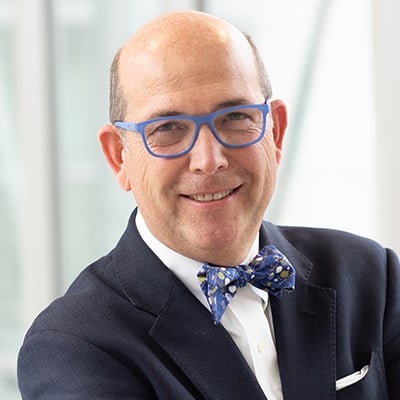

“We are working on getting the financial services industry to be a catalyst for change on how we think about longevity,” said Joseph F. Coughlin, founder and director of the MIT AgeLab, which researches trends related to aging and helps organizations develop innovations in what he has dubbed the “longevity economy.”
Mr. Coughlin’s involvement with the financial services industry came about when he realized that it could serve as the lynchpin in changing societal attitudes to aging.
“There’s been a fundamental flaw in how we approach planning,” he said. “Retirement planning should be more about navigating longevity, beyond money.”
The difficulty people have in planning or saving enough for retirement is not because they lack financial literacy or need to buy the latest TV, but because it is very difficult for them to visualize their future selves, he said; they are saving for the most ambiguous thing they will ever buy.
Accordingly, advisers need to change the focus of conversations from purely financial to helping clients manage the ambiguity, big decisions, complexity and end-of-life issues of life planning.
“You never associate creativity, design or stories with financial services,” Mr. Coughlin said. “The industry does a good job talking about complexity and quantitative matters, but when we talk to people about retirement, we need to change the narrative to appeal to their heads and hearts, and help them design their own later lives.”
Society also needs to write a new story about retirement, he said — one that does not view aging with negativity and dread, nor see older people as having less value.
In fact, people over 50 are a tremendous economic force, controlling 83% of U.S. household wealth, Mr. Coughlin said.
“It’s tragic for us to throw away the knowledge, creativity and experience older people offer,” he said. “They’re the largest emerging market hiding in plain sight.”

Most firms place a limit on advisors’ sales of alternative investments to clients in the neighborhood of 10% a customer’s net worth.

Those jumping ship include women advisors and breakaways.

Firms in New York and Arizona are the latest additions to the mega-RIA.

The agent, Todd Bernstein, 67, has been charged with four counts of insurance fraud linked to allegedly switching clients from one set of annuities to another.

“While harm certainly occurred, it was not the cataclysmic harm that can justify a nearly half billion-dollar award to the State,” Justice Peter Moulton wrote, while Trump will face limits in his ability to do business in New York.
Orion's Tom Wilson on delivering coordinated, high-touch service in a world where returns alone no longer set you apart.
Barely a decade old, registered index-linked annuities have quickly surged in popularity, thanks to their unique blend of protection and growth potential—an appealing option for investors looking to chart a steadier course through today's choppy market waters, says Myles Lambert, Brighthouse Financial.
